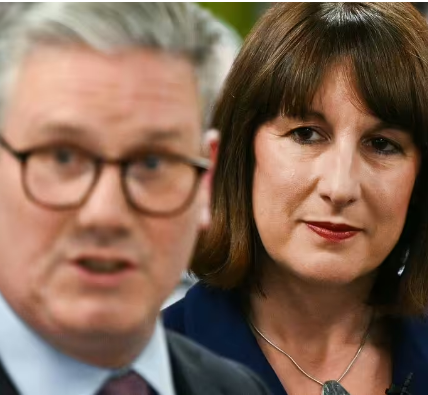
Rachel Reeves’ budget on October 30th needs to be bold and transformative. (Image: Getty)
Labour MPs are agreed on two things:
– Average wages at this year’s general election were lower than when Labour left office in 2010 and
– If Rachel Reeves’ budget on October 30th is not bold and transformative then Labour will be leaving office again at the next election.
No wonder those who carry no candle for a more equal society are queueing up to tell her that the family credit card is maxed out, and ‘bold and transformative’ is the last thing she should be doing.
The truth is the government’s finances are not constrained in the same way as your household income.
You cannot simply give yourself more income. The government can and does. It creates money when it needs to – £895 billion over the past 15 years in fact. It’s called quantitative easing.
You retire. And when you stop earning you are obliged to have paid back what you owe. The country does not retire. Its earning power goes from generation to generation and its debt is rolled forward.
You can’t increase your income, so you must control your expenditure. Government can increase its income (within limits) by raising taxes.
The spectre of Liz Truss is wielded as a talisman by the very people who voted her into ill-judged office. ‘No more borrowing!’ they say, we just can’t afford it.
The truth is Boris increased debt to GDP by 16.5%, Cameron by 12.1%, hapless Liz by precisely 0%.
Truss’s budget failed not because of the extent of her borrowing, but because she increased the deficit
when inflation was rising and did not control the Bank of England’s response. Annualised interest rates were minus 0.4%,
and plus 0.4% under Cameron and Johnson respectively. Under Truss they were 12.4%.
Fear of debt has dominated UK politics for the past 14 years. The UK response to the Global Financial Crisis was two-fold: quantitative easing and austerity.
The benefits of quantitative easing went principally to the wealthiest 5%, the pain of austerity was felt principally by the poorest. How strange that we immiserated our public services and impoverished the average family all in the service of an arbitrary fiscal rule: that debt as a proportion of GDP should be falling over a five-year cycle.
In fact, the average debt level over the last 200 years turns out to be precisely what it is today: 100% to GDP – after the war it reached 250% just at the moment that someone had the bright idea to invest in the National Health Service!
And if this makes you wince and wonder why the edifice of state has not collapsed, then you should perhaps reflect on how it is that any of us ever bought our own home? The bank normally expects your own personal ratio of debt to GDP should be about 400%.
That means a combined income of £75,000 (two average salaries) can just afford a £300,000 property.
So what does that young couple have that we as a country seem to lack? The answer is Hope and Ambition. That is what Rachel Reeves budget must deliver – a change in the national mood.
No more “things can only get worse”. The economic mess left by the last government is no excuse. She must transform the national psyche with a bold investment boost to our national economy.
The point of government is not to count beans or say everything is just too difficult. Government is there to create the drive and entrepreneurial spirit that generates greater wealth.
Never should we borrow to pay ourselves more, but we must borrow to invest in our future. On October 30 we don’t just need a change in the fiscal rules, we need a change of vision.
A budget of national renewal just as we did after the war, where the prize is an empowered country with the tools and infrastructure it needs for success.

